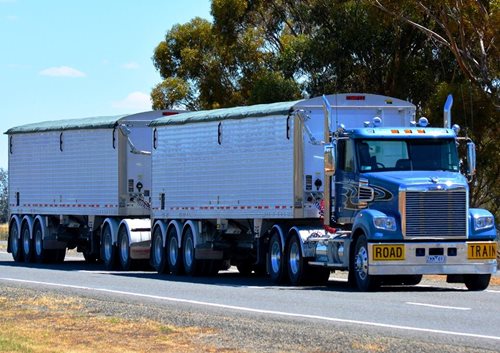Q: My son and his new wife want me to co-sign a loan with him so he can buy a truck and become his own boss. My friends are giving me different advice on this. Should I co-sign the loan and keep my wife and son happy, or should I refuse to co-sign. I understand this truck could make my son a good living if he does it right, but I am a little afraid I could mess up my credit if things go bad. What should I do? - Jack B
A: Jack, my advice to you or anyone who is asked to co-sign a loan is to RUN. I can never in good conscience advise anyone to co-sign a loan. There are just too many ways for this thing to go bad and ruin your credit. My advice to you is DO NOT CO-SIGN this loan.
Now let me explain why I do not want you to co-sign. This is your son, and as such you will always be in contact with him at any family event such as Thanksgiving, Christmas, birthdays, etc. Used trucks are selling for around $30,000- $50,000, plus you add a trailer to the cost of the truck, buy insurance, tags and anything else needed to get started in his business (I also recommend he incorporate his business if he starts one). It appears you will have about $30,000-$60,000 for the loan amount.

Next, look at your present credit standing. Review your credit history from all three credit reporting agencies; Equifax, Experian and TransUnion. You are entitled by law to one free credit report every year from each of the reporting agencies and can get your reports at www.annualcreditreport.com. If you notice any errors on your credit report, contact the agency reporting the error and tell them it is wrong and request they either correct or erase the information. This is all free under the Fair Credit Reporting Act and something I suggest everyone review at least yearly.
You can also go online and purchase your credit score, called your FICO (Fair Isaac Corporation) score from each reporting agency. Scores can range from 300 to 850, with the higher the score the better. If your credit score is high, you can be approved for better loan interest rates and more banks will lend to you. Higher scores are considered to have better credit worthiness, which is just one way of providing the probability that you will repay your debt or loans.
The things that are used to calculate your FICO score vary from reporting agency to agency but are very similar.
They look at:
- Your on-time payments.
- The amount of credit capacity used, that means if you have credit available of 100,000 and you have borrowed 50,000 then your capacity is 50% and lenders want your capacity to be low.
- Type of credit such as mortgage or credit cards.
- The length of your credit history, the longer the better because it shows how you pay over a longer time
- Your credit applications made in the past, are you always opening or trying to open new credit card accounts at stores or from the mail.
Any damage to or error on your credit report affects your credit score. If you co-sign with your son on a debt, then you expose your credit report to the chance that your son could fail to make his payment timely. When you co-sign, your son’s late payment shows on your credit report that you failed to pay on time. Should he default on the debt, your credit report will show you defaulted on the debt. Everything your son does with that debt is just the same as you doing it. His timely payments help you just as his late payments hurt you.
Let me give you the bad news about co-signing a note that does not perform well. Your credit report and credit score could be affected for seven years. For seven years you could be denied loans, be required to pay higher interest on your loans and credit cards. Bad information that is accurate can’t be removed from your credit report.
You probably want to know how I know about all this bad information that stays on your credit report. Well, I did co-sign a very close friend’s car note while we were in college. Did I tell you he was my very good friend and did not make one payment on that car? I did, I made several payments until I wised up and told the bank to come get the car, which they did. The bank was nice enough to put bad information on both our credit reports, but I was only concerned about mine. Yes, my wife mentioned that over the next seven years and that is probably why the lesson from the school of hard knocks sticks with you so long.
But my advice is, don’t co-sign on a loan, no matter who it is for and for what amount.